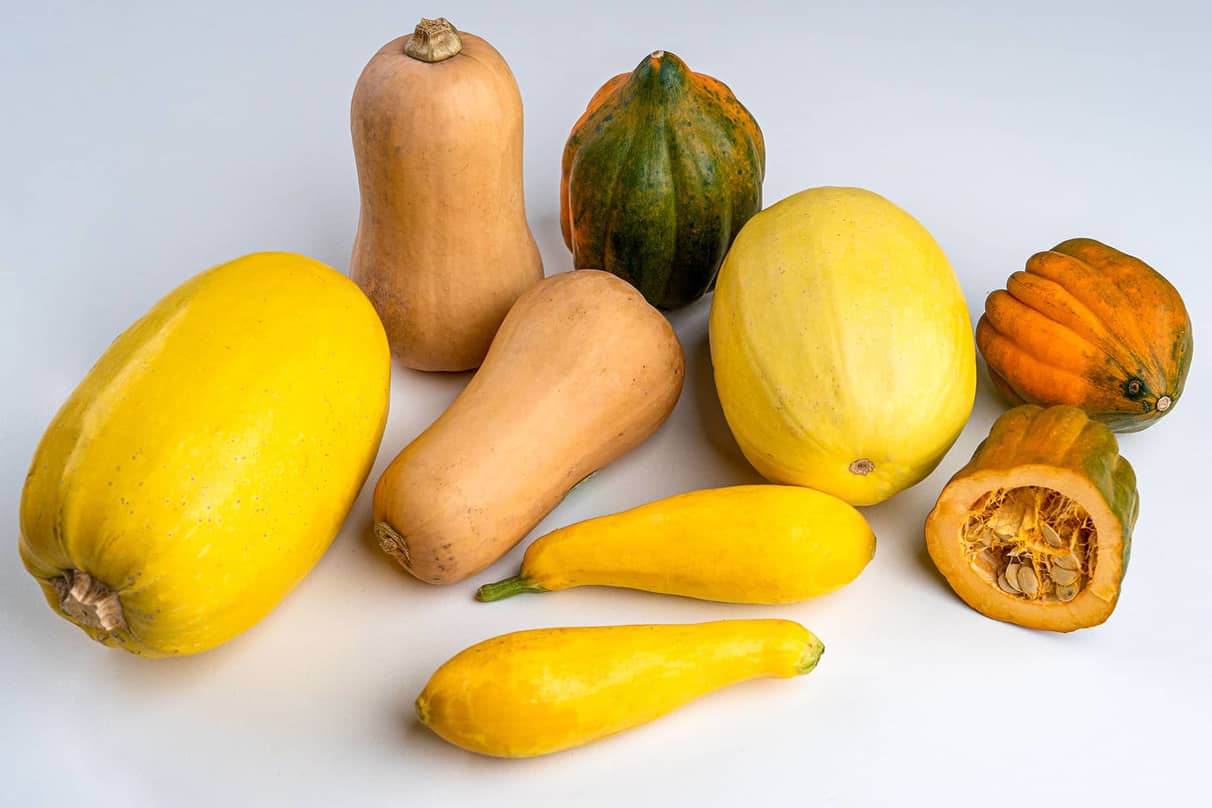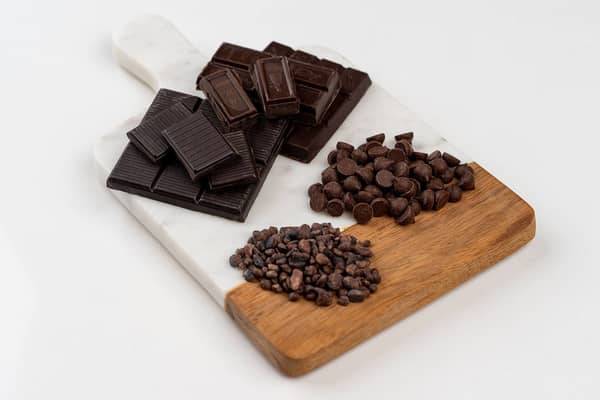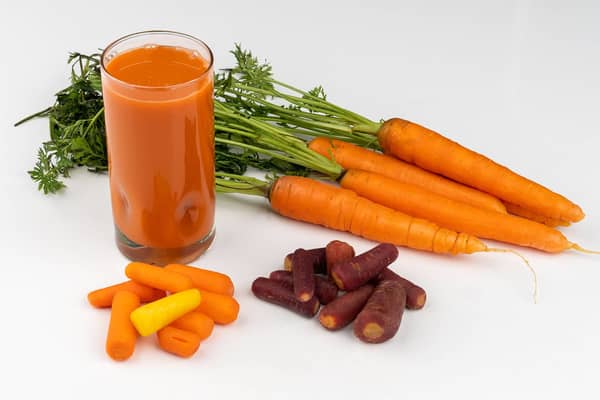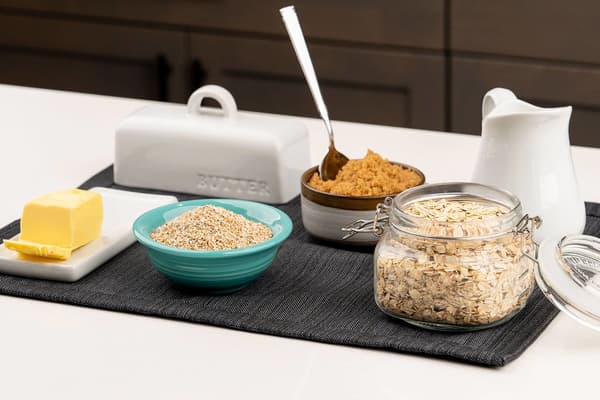5 Nutrient-Packed Winter Vegetables, According to Registered Dietitians
Nutrition
Discover the nutrient-dense vegetables that are in high demand in the colder months.

Apart from tasting better and often being more affordable than out-of-season produce, there are a few other perks to buying seasonal vegetables.
"For starters, locally grown produce supports the environment, as well as local farmers", said Lisa Young, PhD, RDN, adjunct professor of nutrition at New York University.
Purchasing locally grown produce can also help reduce the population's carbon footprint, as it eliminates the need to dispatch food hundreds (if not thousands) of miles across the country, according to Sarah Koszyk, MA, RDN. "The produce is at its highest nutritional value since it is being harvested at peak season, providing all the vital minerals, antioxidants, phytochemicals and vitamins", she said.
Here, both registered dietitian nutritionists offer their top nutrient-dense, versatile and easy-to-find winter vegetables.
Health Benefits of 5 Winter Vegetables
1.Squash

"Despite its name, winter squash is grown in the summer and harvested in autumn", Young said. She admitted to being a huge fan of butternut squash for its versatility and satiety, as well as its nutrition profile.
She explained that cooked butternut squash provides beta-carotene (which converts to vitamin A and promotes healthy eyes and skin), as well as immune-boosting vitamin C. In addition, this type of squash contains potassium, a mineral that aids heart function and muscle contraction. It's also low in calories. A one-cup serving equals 80 calories—and offers more than 6 grams of fibre.
In addition, a study found in a 2016 issue of the journal Scientific Reports revealed that consuming yellow and orange vegetables was associated with reduced risk of heart disease. Researchers noted that increasing consumption by just one serving each day could lower the risk of heart disease by as much as 23 percent.
How to cook with squash:
Young suggested enjoying the vegetable either roasted, lightly sautéed in olive oil or puréed into a soup. "Squash is stored best on a cool and dark shelf in the kitchen or pantry", she said.
2.Leeks

A cousin to garlic, onion and chives, leeks are a nutrient-dense bulbous vegetable. And they're packed with numerous vitamins and minerals, including vitamin K and manganese, which are both necessary for blood clotting and healthy bones, Koszyk said.
"Similar to garlic, leeks also have allicin—a beneficial sulphur compound—which has been linked to anti-cancer properties, cholesterol-reducing benefits and antimicrobial properties", she said.
In a narrative review published in a 2018 issue of the journal Nutrients, researchers studied a variety of vegetables and their potential benefits in reducing the risk of chronic diseases. They found that consuming allium vegetables (think leeks, garlic, onions) may help lessen the likelihood of suffering a heart attack or stroke.
How to cook with leeks:
"A classic way to enjoy this winter vegetable is to make leek and potato soup", Koszyk said. Other suggestions include tossing it into an omelette or frittata, sprinkling on pizza or sautéing to either serve as a side vegetable dish or mixed in a pasta sauce.
"A highlight of leeks is that they can be a part of no-waste cooking by using the entire leek—even the rough outer leaves and the roots—to make a stock, broth or sauce with those parts", she said.
Bear in mind that leeks need to be thoroughly scrubbed before they are cooked.
"Leeks tend to have a lot of dirt inside, so after slicing this vegetable, thoroughly wash it in a colander", Koszyk said. In terms of storage, she suggested placing fresh, unwashed and untrimmed leeks in a container and putting them in the fridge for up to two weeks.
3.Beetroot

Young referred to this root vegetable as a "nutrition powerhouse" due to the fact that it's rich in a variety of nutrients, including folate, a B-vitamin that encourages DNA production and cell division. Beetroot is also a good source of iron, an essential mineral that's necessary for carrying oxygen from the lungs throughout the body, and fibre—a plant substance that supports digestion and weight management.
"Beetroot also contains betalains, a powerful antioxidant which gives this veg its deep red colour and offers numerous health benefits, such as possibly helping to fight cancer, heart disease and high blood pressure", Young said.
A review published in a 2021 issue of the journal Food Science & Nutrition found that the betalains in beetroot may also assist in lowering blood-glucose levels, enhancing athletic performance by minimising muscle soreness.
How to cook with beetroot:
"Beetroot can be roasted and then tossed into a salad or smoothie and can be stored for a short time in a cool, dark part of the fridge", Young said. "It can also stay on the counter for up to three months", she added.
4.Collard Greens

A leafy, cruciferous vegetable that belongs to the same species as cabbage, kale and broccoli, collard greens boast many nutrients. These include vitamin K, which is supportive for bone health and can also assist in blood clotting (which helps a wound stop bleeding in order to start healing).
"This winter vegetable is high in fibre, along with being rich in phenols, polyphenols and alpha-lipoic acid—all antioxidants that have been shown to reduce inflammation, protect the body from free radicals and lower the risk of cancer and heart disease", Koszyk said.
And there's plenty of research to support that. For instance, a medical review published in a 2021 issue of the journal Frontiers in Pharmacology identified an association between glucosinolates (phytochemicals found almost exclusively in cruciferous vegetables) and the prevention and management of numerous chronic conditions. These include cardiovascular diseases, neurological conditions (such as depression) and musculoskeletal disorders.
How to cook with collard greens:
One way to enjoy collard greens is as a side dish sautéed in olive oil. Koszyk also recommended adding chopped collard greens to a salad or slaw, or swapping out Cos lettuce for collard greens to make a leafy wrap. Another hack? Purée collard greens and create a pesto-like sauce by mixing in olive oil, pine nuts and Parmesan cheese.
"This green vegetable is so versatile it can be used like spinach or kale and added to soups, stews or even as a pizza topping", Koszyk said. "Similar to kale crisps, collard green crisps make for a salty, crunchy snack".
Collard greens can be stored in the fridge for about one week.
5.Swedes

"A cross between a turnip and a cabbage, swedes are rich in glucosinolates, along with two important electrolytes for athletes: magnesium and potassium", Koszyk said.
"Thanks to the high vitamin C and vitamin E content as well as the glucosinolates, swedes can also assist with the synthesis of collagen and protect the skin from UV damage, which can optimise skin health", she said.
How to cook with swedes:
Consider roasting the root vegetable and preparing it as a side dish, or substituting sweet potatoes for swedes to make chips.
"Since swedes are sweet and slightly bitter, giving a lovely flavour when mixed with spices and herbs, I like making a swede mash, similar to a potato or cauliflower mash", Koszyk said.
She said she recommends buying firm, heavy swedes and storing them for a week at room temperature or in the fridge for about two weeks.
Words by Amy Capetta





